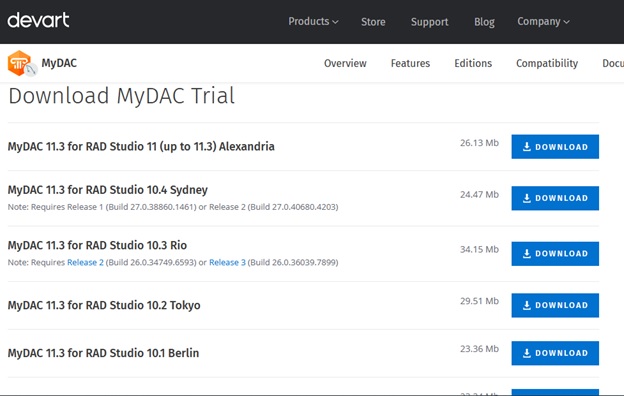An audit isn’t a pleasant experience for anyone to go through. It can be stressful, trying to get everything in order. Preparation is essential because one mistake can end up costing you a lot. It’s important to know that you’re not alone, however; everyone gets audited at some point in their lives, whether as an individual or a business. What you should do is keep calm and focus on getting the job done so that the audit process can go as smoothly and quickly as possible. It doesn’t have to be as stressful as you think it might be.
To help you properly prepare, here are five important steps to help you make your audit process less stressful. By keeping these steps are regular practices for your business, you’ll find that each audit will become easier and easier.
Source: Unsplash
Table of Contents
Knowing The Type Of Audit
Whether you’re currently undergoing an organizational change management or a restructuring of the company, you shouldn’t let that get in the way of taking care of your audit. There are three main types of audits that your business might be subjected to.
1. External audits: these are performed by a third party outside of the company. They provide more unbiased opinions as there is no conflict of interest getting in the way.
2. Internal audits: these are performed by internal employers of the company; the records are not distributed outside of the company and are for internal uses only.
3. Government audits: these are performed by government entities to ensure that you are keeping the proper financial records for your business and not misrepresenting taxable income.
As you can see, knowing the kind of audit that’s being performed can make a world of difference to how you fully prepare for the process. For example, a government audit definitely requires a lot more preparation and documentation than an internal audit. There are also more repercussions from a government audit if there are any mistakes.
#1 Planning For The Audit
You should spend as much time as possible preparing for your audit. It can take as long as a few months in order to get all your paperwork in order, depending on the size of your business, how it operates, and the complexity of your financial records. You should set aside a lot of time leading up to the audit to check and double-check the documents. You might even want to dedicate additional resources to the final preparation for the audit.
You can save time on the entire process by keeping all of your records up to date throughout the year. This will reduce the pressure around the time of the audit because there will be less to take care of.
#2 Maintaining Accounting Standards
Accounting standards, regulatory requirements, and legal requirements and updated every single year, and it’s important that you remain up-to-date with these changes. Any slacking off in these areas can lead to disastrous results, and there is no adequate defense for doing so.
Become familiar with the changes made by the regulatory bodies every year so that your finance team is familiar with any changes that need to be made within the company and its record keeping. You will save a lot of time from having to track down data and make changes after the fact when an audit crops up.
#3 Assess Organizational Changes
It is possible for your company to get audited more than once over the years. In the event that this happens, then you should keep track of any changes that may have occurred between audits. Note down any changes in the financial situations of the company that took place between audits. Material changes can also affect the auditing process, such as investing in new, major projects or receiving government grants.
Financial changes aren’t the only modifications to be considered; you should take certain non-financial changes into account as well. These changes could include internal control systems and changes in management accounting standards. Not considering these changes can lead to problems during the audit.
#4 Learning From The Past And Building A Timeline
If you have been audited before, then you should look at the notes and recommendations from that audit to know what should be changed and what to prepare for in the future. The only way to improve your future audits is to take these recommendations into account; ignoring them conveys the image that you don’t really care to improve the operation of your business.
You should also take the recommendations and requirements into account from the last audit and assign each one to a responsible member of the business. Provide them with a due date to implement the recommendations to minimize complications in the future and maximize efficiency for the next audit.
#5 Keep Data Organized
Before the audit, ensure that all of your documents and information are organized accordingly. You want to make it as easy as possible for the auditor to look through the information as easily and quickly as possible to expedite the process. You generally want to keep your information sorted for submission in five separate categories:
Transaction records
General ledgers
Financial statements
Invoices and bills
Fiscal year budgets
Demonstrating that you’re organized will convey to the auditor that you’re taking the auditing process seriously, and is also a reflection of how organized you keep your business matters. By treating an audit professionally, you’ll be treated professionally.
The worst thing that you can do is panic when an audit takes place. It won’t help matters to scramble all of your paperwork together as quickly as possible. Instead, it’s best to remain calm and focus on getting all of the right paperwork together and staying organized leading up to the audit date.
If the possibility of an audit still leaves you feeling uneasy, then feel free to speak to an auditor beforehand to know what materials you need to prepare. That way you’re not left to blindly stumble through the process on your own.
The post How To Prepare for an Audit: A 5-Step Guide appeared first on Top Entrepreneurs Podcast | Enterprise Podcast Network.





Leave a Reply